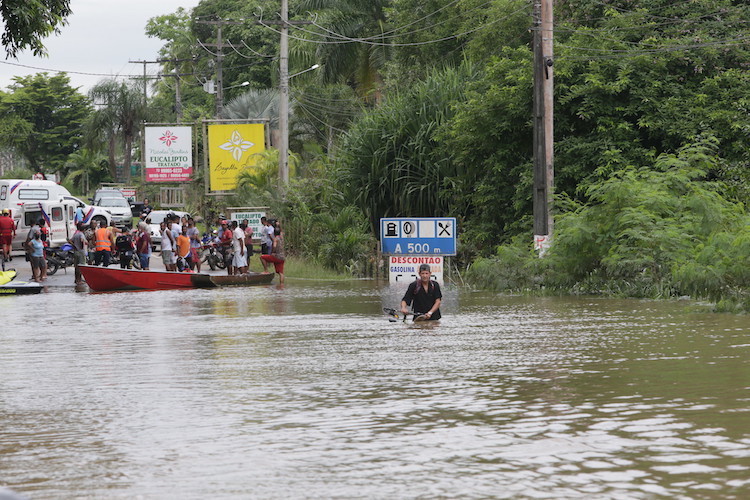
Viewpoint by Mario Cimoli
The writer is the Deputy Executive Secretary of the Economic Commission for Latin America and the Caribbean (ECLAC).
SANTIAGO, Chile (IDN) — The Latin America and the Caribbean region is home to some of the widest biodiversity on the planet. From Caribbean marine and coastal oases to the Amazon rainforest and down to the southern-most reaches of Patagonia, the region is filled with natural wealth.
However, the increasing impact of climate change and climate variability, compounded by the effects of the COVID-19 pandemic have not only undermined the productivity of ecological systems in the region, but have also stalled decades of advancement against poverty, inequality and food insecurity in the region.
Rising sea levels and warming oceans are threatening the health of marine and coastal ecosystems. Drought, landslides, saltwater intrusion, extreme heat and human-induced land use changes have contributed to deforestation rates reaching their highest levels in 15 years.
This trend is impacting terrestrial ecosystems, near-shore urban developments and other human settlements, as well as sustainable livelihoods, soil productivity and tourism opportunities. In the meantime, melting glaciers, mega-droughts, extreme rainfall and flooding are putting food production and water security at risk for both rural and urban populations across the region.
The devastation caused by the frequency and ferocity of extreme hydro-climatic events in the Caribbean is especially overwhelming for the small island, low-lying and coastal States of the subregion.
Addressing such interrelated challenges and multidimensional vulnerabilities will require a well-articulated, prioritized and integrated effort. The coral reef restoration projects ongoing in the Caribbean and Pacific are good examples of this. They seek to re-establish self-sustaining, functioning reef ecosystems affected by ocean warming and acidification, among other stressors, while demonstrating the advantages of effective collaboration between academia and practitioners for collective problem-solving.
Strengthening partnerships and alliances with diverse stakeholders can also create long-term and regional and national solutions. For example, the Climate Action Platform for Agriculture in Latin America and the Caribbean (PLACA), launched at the twenty-fifth session of the Conference of the Parties to the United Nations Framework Convention on Climate Change (COP25), is as a voluntary regional collaboration mechanism on climate action in agriculture.
PLACA promotes collaboration among LAC countries to implement mitigation and adaptation measures that can support regional and national strategies regarding climate change impacts and climate varia- bility in the agricultural sector.
The platform brings together representatives from twelve ministries of agriculture in the region, so far, along with six partner organizations and several United Nations organizations, including the Economic Commission for Latin America and the Caribbean (ECLAC), the Food and Agricultural Organization of the United Nations (FAO) and WMO.
The report on the State of the Climate in Latin America and the Caribbean, the second of its kind, is a critical source of science-based information and data. Informed by science, this report serves to support climate-related policy design and decision-making.
ECLAC will continue to play an active role through the provision of policy support, capacity building, and the improved dissemination of weather, climate-change and climate variability data and information services.
Note: The text of this Viewpoint is taken from preface to The World Meteorological Organization (WMO) State of the Climate in Latin America and the Caribbean 2021. The report highlights the far-reaching repercussions for ecosystems, food and water security, human health and poverty.
Photo: Floods in Ilheus, Bahia, Brazil in December 2021. Credit: Camila-Souza-GOVBA / WMO Report











